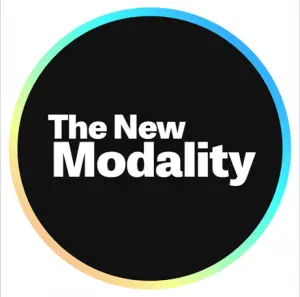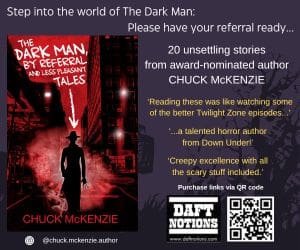Ongoing Submissions: The New Modality

Payment: 15¢ per word or $100
Theme: Science fiction, speculative fiction, magical realism, and fables.
If you’re interested in writing for The New Modality (or otherwise working with us), here’s the form for that! If you need ideas, you can find examples of stories we’re seeking in this document.
As part of our commitment to transparency, we have posted our rates publicly below, with explanations about how we settled on those rates, and suggestions for how to negotiate with us if desired.
We’ve put a lot of effort into making our standard contracts fair for contributors (for example, our contracts are never work-for-hire). Additionally, we plan to create a list of public commitments that we hold between The New Modality and contributors. To develop this list of commitments, we are working with the Freelance Solidarity Project at the National Writers Union. If you’re interested in learning more about that collaboration, drop us a line over Twitter and we’ll let you know where it’s at.
If you are interested in contributing something other than writing, please let us know (again, here’s the form! yay!). This page only covers our writing rates right now, but we’re working on that!
Putting Contributors In The Strongest Possible Negotiating Position
This page was mainly written by Lydia, the editor in chief of The New Modality, and I Have Feelings about artistic economies.
As a writer and editor, I’ve done time in the trenches working for free (both as an unpaid intern, and as a contributor); working for cheap (my first paid freelance writing gig, in 2005, earned me 3¢ per word); and negotiating contracts that ranged from reasonable to horrifying (my dad, who’s a lawyer, once described an editing contract I almost signed as “so unfair that you might as well not have a contract at all”).
Because of my experiences, it’s important to me to stand in solidarity with our contributors. Ultimately, my hope is to set up our contributors in the strongest negotiation position that I can. I hope this will be good for everyone involved with NewMo, and also good for the broader media ecosystem.
Rates
- For Issue 1 of The New Modality, our projected budget for writers is $6,000. We’ll update this page once we know how much we spent.
- In our pitch form, we ask contributors to specify whether they would like to be considered for our “honorarium rate,” or for our “professional rate” (unless they are pitching an unpaid section). If a writer does not specify their preferred rate when they send us a pitch, then we’ll guess which rate to offer based on what we know about their background.
- The Honorarium Rate:
Many of our contributors who earn significant income from non-writing skills (e.g. people with full-time jobs in academia or industry) donate their work. This is also normal for non-professional contributors, and for people who are very new to the industry (e.g. people who have never, or rarely, worked with editors at publications).
o
-
-
- A contributor who does not ask for money will still be offered an honorarium of $100. Most choose to donate this honorarium back to us, but that’s not required.
- To put this in perspective: if you are entitled to an honorarium, and $100 seems like a trivial amount of money to you, then we’d be grateful if you could donate it back to us, because it’s not trivial to us. 🙂
-
- The Professional Rate:
When we negotiate a professional reported non-fiction piece (e.g., by a journalist who will do research and talk to sources), our standard rate is 50¢ per word.
o
-
-
- This rate is relatively high for an independent publication, based on data from Who Pays Writers.
- Depending on our budget and the pitch/writer in question, we may be able to go above this amount for writers who will only work for a higher rate. If you’re accustomed to a higher rate then we’d love to know how much you are used to getting.
-
- For professional science fiction and fantasy writers, our standard rate is 15¢ per word or $100, whichever is higher.
o
-
-
- This rate is almost twice the recommended rate from the Science Fiction & Fantasy Writers of America, even though it’s lower than our rate for reported pieces (the SFF market is different from the journalism market).
- Again, we may be able to go above that rate for really special pitches from writers with a lot of experience, and you’re always welcome to ask.
-
- Due to the realities of our budget, we can afford to accept fewer pieces at the professional rate than we can at the honorarium rate.
- We do not currently pay for republished stories.
- Unpaid Sections:
o
-
-
- We have some unpaid sections where members of our community talk about fun ideas or highlight interesting projects. These sections include:
– “Tiny Reviews” (of books, movies, etc.),
– “My Pet Theory,”
– “My Favorite Study,”
– “Super Short Profiles,”
– “Check Out This Project.”
- We have some unpaid sections where members of our community talk about fun ideas or highlight interesting projects. These sections include:
-
- Other Notes about Rates:
For any story, the rate is set when the piece is commissioned. A contributor who ultimately goes over the word count that we negotiated does not get more money by default, although they can always ask. - We will never publicly state how much we paid a specific contributor without their explicit consent, unless required by law.
If you feel that we should raise our rates, we encourage you to to donate or subscribe and/or ask others to do so. 🙂
Other Aspects of the Contributor Relationship
We are currently talking with the Freelance Solidarity Project at the National Writers Union. If you’re interested in learning more about that collaboration, drop us a line over Twitter.
We hope that one result of this collaboration will be a list of commitments that we can hold publicly with the freelance community. Obviously, one of those commitments is rate transparency. We’ll update this page when we know more.
Aside from that, we would like to ensure that our contributors are aware of certain things at the beginning of the relationship:
- The New Modality fact-checks some of our non-fiction articles. In some cases, this adds extra editing to the process after the final draft is handed in. If you are unavailable for additional editing during the fact-checking process, we may modify the story without your input in order to bring it in line with the facts.
- We have no wish to surprise contributors by changing the text of their contributions, and we seek to clear such changes with contributors before publishing. In some cases, the realities of the fact-checking or copyediting process will make this impossible, but we’re trying.
o
-
-
- Since we are a brand-new operation, there will probably be slips in our process. If you are a contributor and you believe that something about your work was altered without your consent, please feel free contact us and let us know, because that gives us an opportunity to figure out where the process slipped up.
-
- Many freelancers are extremely frustrated with the typical long wait times of hearing back from editors. As a freelancer, I understand. And, as the founder of this organization and its only full-time employee, I can honestly tell you that we’re often overwhelmed and can’t guarantee quick responses. You’re always welcome to follow up with us if you feel that we’re taking a long time. However, if you need a guarantee that you’ll always hear back from your editor within a week or two, we cannot currently provide that.
o
-
-
- Sidenote: if you’re excited about reducing our email response times, please note that we’re hiring an assistant! If we can hire a really capable assistant then we suspect our email response times will improve, so please help us get the word out. 🙂
-
- Simultaneous submissions are totally fine, and so are multiple submissions.
- We showcase examples of articles and stories we’re looking for in this document. If you’re excited to pitch us, use this form!
o
-
-
- Email pitches are welcome, but if you want to maximize your exposure to our team, we recommend the form.
- For personal essays and fiction stories, we ask that you submit full stories, not pitches. The form can accommodate document uploads, so if you are submitting a personal essay or a fiction story, then you can send it through the form.
-
Final note: If you’re new to freelancing and trying to learn the ropes, I can’t overstate the importance of coordinating with other professional writers and creatives. Two communities that I’ve found to be both helpful, and accessible to people at all points on their creative journey, are:
- XOXO — If you can make it to Portland, Oregon, in September, then XOXO Festival is worth attending. The event describes itself as “an experimental festival for independent artists who live and work online.” People who have attended XOXO in the past also have year-round access to online spaces for conversation about culture, the creative process, and how to build an independent creative career.
- Study Hall — This group calls itself “a media newsletter and online support network for media workers.” Membership is available to anyone who supports Study Hall on Patreon. $4 per month gets you into their email group and $11 gets you access to a Slack group, pitch guides, and various databases. As soon as I joined this group, I was thrilled to see the level of coordination around improving conditions for freelancers.
Both XOXO and Study Hall are shifting creative culture in their own way. If you join either group, I hope you find it useful and supportive.
Feedback and conversation is always welcome about The New Modality’s contributor commitments — find us on Twitter at @NewModality
Via: The New Modality.
- About the Author
- Latest Posts
Stuart Conover is a father, husband, published author, blogger, geek, entrepreneur, horror fanatic, and runs a few websites including Horror Tree!











